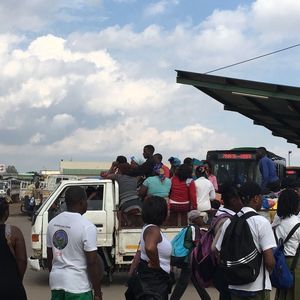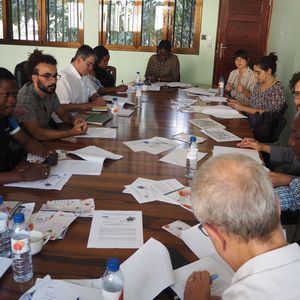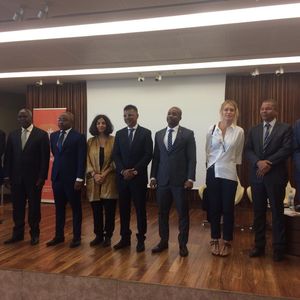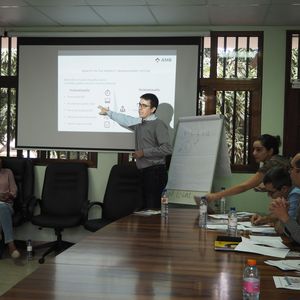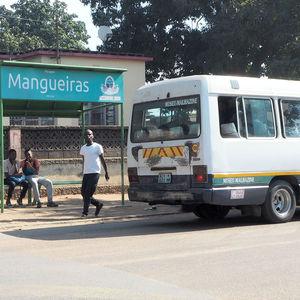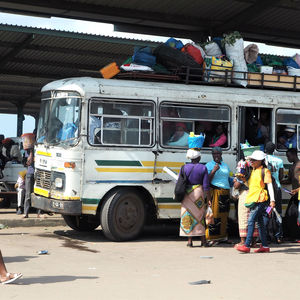Mobility in Maputo
| Subject: International Cooperation, Mobility and Transport
The AMB helps improve mobility in the Maputo Metropolitan Area, Mozambique

A group of technical staff members from the AMB specialised in public space, mobility and cooperation recently travelled to Maputo (Mozambique) to take part in several activities organised in the context of the project "Metropolitan Management of Sustainable and Inclusive Mobility in Greater Maputo: Contributions to Metropolitan Transport Agency Operations", developed by the Maputo City Council, the Metropolitan Transport Agency, Architecture Sans Frontières and the AMB.
The trip served to reconfirm the commitments to joint action undertaken by the various metropolitan councils, the Maputo Metropolitan Transport Agency and the Barcelona Metropolitan Area.
Meetings were held with all the authorities chosen in this year's elections to learn about the challenges concerning the new administrations and reaffirm the commitment with the AMB.
Contributions by the AMB
The project "Metropolitan Management of Sustainable and Inclusive Mobility in Greater Maputo: Contributions to Metropolitan Transport Agency Operations" has benefitted from the technical expertise of the AMB's staff, experts in a number of different fields, who, with their knowledge and experience, helped carry out a number of project's initiatives, such as the renovation of two pilot public spaces (a square at an intersection in an undeveloped neighbourhood and a street adjacent to the main hospital); bike lane plans (public space and mobility); the analysis of concessions for private transport cooperatives; the development of criteria for improving the quality of collective transport and particularly buses; and the support to project's mobility and gender team, which works to improve women's rights with regards to mobility.
Metropolitan challenges surrounding mobility
The Maputo Metropolitan Area, with a population of roughly three million inhabitants, is facing major challenges in its push to improve metropolitan mobility. The rapid growth of its population, the occupancy of unplanned peri-urban areas, a high demand for and low supply of transportation and insufficient collective transport management hamper mobility in the city. In addition, Greater Maputo is home to 80 % of the country's vehicles (people with the capacity to buy and pay for fuel represent 12 % of the population), and the lack of parking regulations means that vehicles occupy a large portion of the public space. Another factor that must be taken into account is the rise in violence against women in public transport services (82 % of the assaults), as well as while waiting and walking.
2nd Mobility Week
The 2nd Greater Maputo Sustainable Mobility Week, which took place from 13-22 September, was organised by the Maputo, Matola and Boane city councils, as well as the district of Marracuene, the Metropolitan Transport Agency, BCI, Architecture Sans Frontières, UN-habitat, French Development Agency-AFD, World March of Women and the AMB in partnership with numerous companies and organisations.
The initiative served to focus attention on the challenges and proposals for improving mobility in the Maputo Metropolitan Area and included a series of activities, such as workshops, open classrooms, a seminar and films.
The AMB's technical staff delivered a series of workshops during the training sessions on issues such as public space and mobility, street design, bike lanes, metropolitan connectivity, mobility and gender and the public-private management of collective transportation.
The team also took part in the seminar entitled "Sustainable Mobility in the Maputo Metropolitan Area", in which they presented the AMB's governance model and two institutional experiences: metropolitan connectivity from the perspective of public urban space and the public-private management of the collective transport system.
Image gallery
Related documents
Related links
Related cooperation projects
Where














































